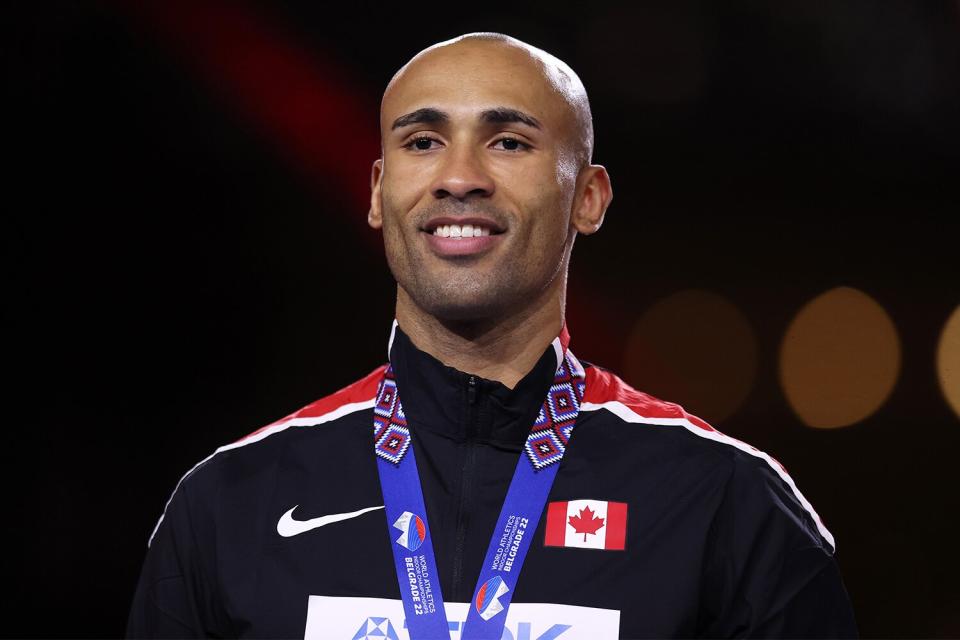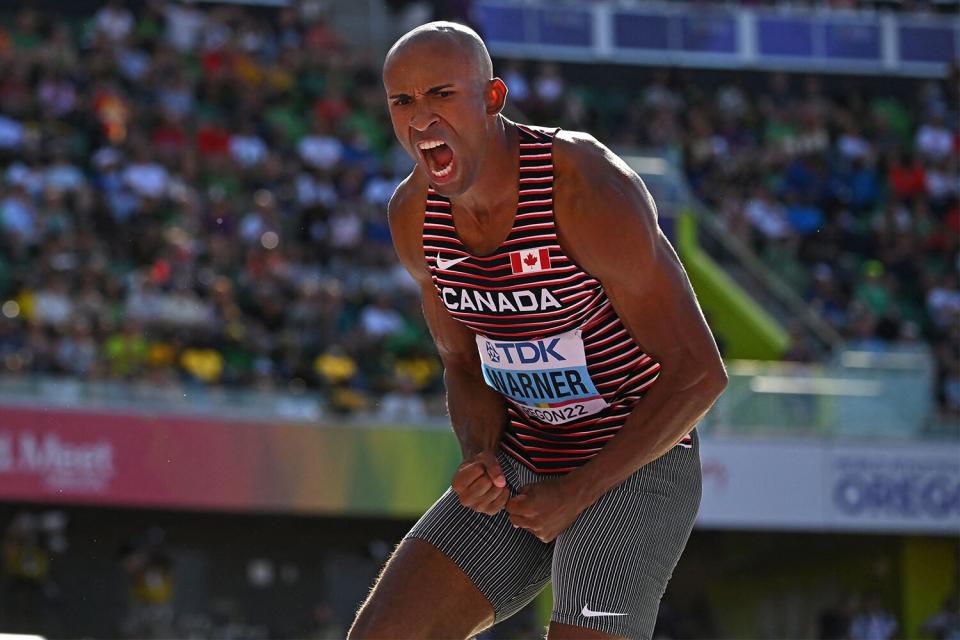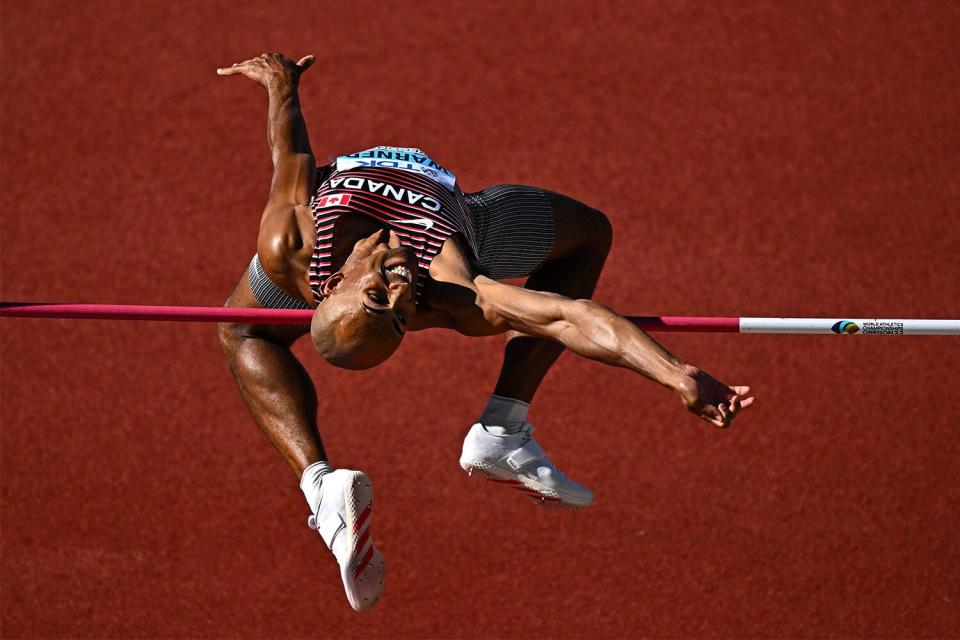Olympic Gold Medalist Damian Warner Wants to Be 'Open and Honest' About Mental Health

Alex Pantling/Getty Damian Warner
Olympian Damian Warner says he feels the pressure to be a good role model "all the time" as an athlete, but the three-time world medalist embraces the opportunity.
"I understand that the people in my life have sacrificed so much time and energy to allow me to do what I love," Warner, 32, tells PEOPLE. "It's near impossible to pay them all back, so I try to lead by example and pay it forward the best way I can. To be the best role model I can be, to show them their efforts have not gone to waste."
The track and field star, who took home the decathlon gold medal at the 2020 Tokyo Olympics, has partnered with Lululemon in an effort to encourage mental health awareness through sport.

BEN STANSALL/AFP via Getty Damian Warner
Warner explains that he and the brand hope to "use the amazing power of sport to uplift and inspire our communities and to help people realize their full potential."
Now, the decathlon star is inspiring a new generation of athletes to pursue their athletic dreams. "It means everything," he says of being an ambassador for the athletics brand.
"As I get older, I realize the importance of working with companies I believe in," says Warner. "A company that cares about furthering the possibilities in sport, that stands for equality and inclusion, and a company that effects change around the world and at home in our communities."
RELATED: 'You Have to Share These Things': 15 Times Athletes Opened Up About Mental Health
Despite being an athlete who competes solo, Warner says he believes "that nothing great can be achieved alone." Before his gold medal victory in 2020, he became the second Canadian athlete to win a medal in decathlon in 2016, and is a three-time Olympic medalist in his career.
RELATED VIDEO: Mikaela Shiffrin Gets Support from Simone Biles as She Gets Candid About Olympic Struggles
"Without the community that has been there for me since day one, none of my accomplishments would have been possible," says Warner. "I think it's important to uplift the people around us so we can all have an equal opportunity to chase our dreams and goals and ultimately live a happy and healthy life."
Crucial to Warner as an athlete and a role model is maintaining his mental health, by being "open and honest" with the people around him and his sports psychologist. The Olympian says, "The idea of disappointing or letting them down can be burdensome, but being someone people can look up to is important to me."
"I think it's imperative that you have people in your life that you can talk to," he adds.

Sam Barnes/Sportsfile via Getty Damian Warner
RELATED: Olympian Karen Chen Says Mental Health Struggles Made Figure Skating 'Hard to Enjoy'
Next, Warner will enjoy some time off from competing. "Outside of athletics, I am looking forward to spending time with my family and maybe take the trip to Barbados that we have been talking about for a little while now."
Warner joins a number of athletes speaking out about mental health in sports. In a January 2021 interview with TIME, Olympian Chloe Kim detailed her experience returning home and embarking on a media tour after taking the gold medal in the halfpipe at the 2018 Winter Olympics. Kim said she dumped the medal in a trash bin at her parents' house after the Games.
"I hated life," she said, explaining that she struggled with her new-found fame. Kim has since found resources to help her work through the challenges of life as an elite athlete, including therapy, and has found it freeing. "Just being able to let those things out that you just tuck in your little secret part of your heart helps a lot … I feel much more at peace now."

 Yahoo Sport
Yahoo Sport 





































